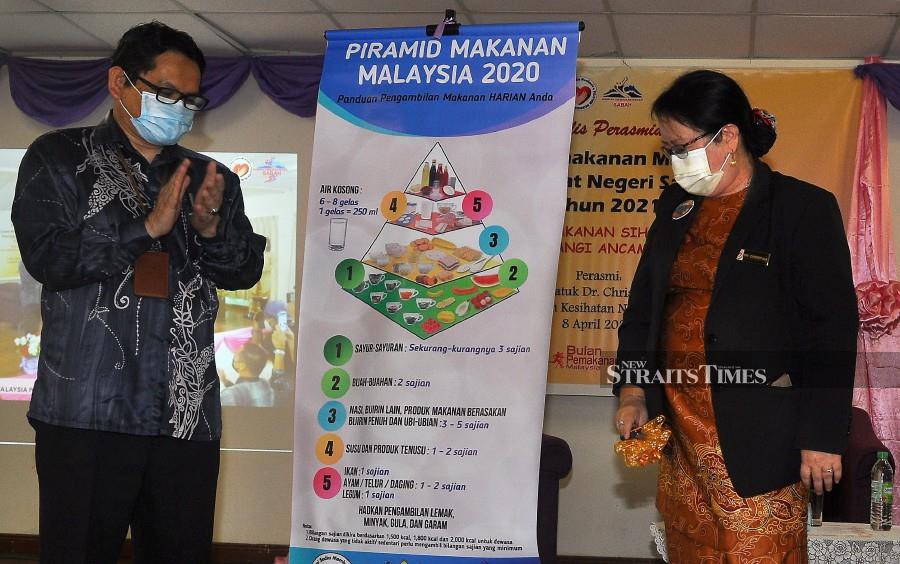By Olivia Miwil - April 8, 2021 @ 4:09pm
Sabah Health Director Datuk Dr. Christina Rundi (right) at the launch of the state-level National Nutrition Month programme. With her is Deputy Director (Public Health) Dr Asits Sanna. - STR/MOHD ADAM ARININ
KOTA KINABALU: The Covid-19 pandemic has triggered malnutrition-related illnesses among
the people in Sabah, said state Health director Datuk Dr Christina Rundi.
"Many were forced to stay and cook at home during the implementation of the Movement Control Order and shops were closed.
"But for those who had lost their incomes, they have limited resources and this resulted in some medical conditions such as Beriberi and anaemia," she said during the launch of the state-level National Nutrition Month programme, here.
Dr Christina added there were "food basket" programmes for children that lacked nutrition to help their growth and for mothers to prevent them from becoming anaemic during their pregnancy and breastfeeding periods.
She said the department had also initiated "edible garden" projects that included schools to cultivate the habit of eating greens among young children.
"Edible garden projects are a concept where everyone can do it themselves and anywhere.
"It is meant to deliver the message that we have options in choosing what we eat responsibly," she said, adding that such practices would also discourage people from wasting food.
Meanwhile, Dr Christina added that the health department is also educating the public at large on health issues related to their diet such as hypertension, diabetes and other non-communicable diseases.
Based on the National Health and Morbidity Survey for Sabah, there is an increasing trend of being overweight and obesity in adults aged above 18.
In 2006, the incidence rate was 34.6 per cent and it has increased to 48.1 per cent in 2019.

Comments
Post a Comment